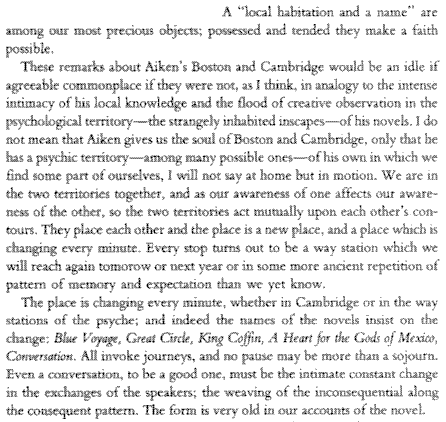Thursday, June 15, 2006 12:00 PM
Baez LinkJohn Baez's latest This Week's Finds
(Week 234, June 12, 2006) has a link
to my "Geometry of the 4x4 Square" at
http://finitegeometry.org/sc/16/geometry.html.
Wednesday, June 14, 2006 5:00 PM
On the Brighter Side...At 8 EDT tonight on CBS:
The American Film Institute's
100 most inspiring American films.
For the list of 300 films on
the AFI ballot sent to voters,
click here (pdf, 772k).
Wednesday, June 14, 2006 7:11 AM
Dark Lady


Hypercube and Cube

Unfolding
For every kind of vampire,
there is a kind of cross.
-- Gravity's Rainbow

Kate Beckinsale, poster for
Underworld: Evolution
(DVD release date 6/6/6)
evolve:
1641, "to unfold, open out, expand,"
from L. evolvere "unroll," from ex- "out"
+ volvere "to roll" (see vulva).
-- Online Eymology Dictionary
Related material:
Introduction to Multispeech,
All Hallows' Eve, 2005
Wednesday, June 14, 2006 3:48 AM

Related material on philosophy:
The death of Hollywood agent
Ingo Preminger, brother of
Otto Preminger, on June 7,
the Log24 entry of June 7,
Figures of Speech, and
Lichtung!
Ingo Preminger was also
the producer of the 1970 film MASH.
Related material on brotherhood
and the Korean War:
He Ain't Heavy.
Friday, June 9, 2006 10:31 AM
continued from
December 18, 2005
-- From page 2 of
Problems of Mysticism
and Its Symbolism, by
Herbert Silberer, 1914
(English translation
published in 1917)
"And we may see
the meadow in December,
icy white and crystalline."
"Midnight Sun"
-- Silberer, Problems of Mysticism online
Friday, June 9, 2006 8:00 AM
Ursprache Revisited"Rilke's poems operate at this balancing point between openness and closure, between centripedal and centrifugal motion, the poem being all symbol and being all object. Rilke developed the inwardness of poetry begun in Baudelaire and refined in Mallarmé into new depths of self-referentiality. Verinnerlichung was the term for this transmutation from outer to inner...."
-- Rainer Maria Rilke: Life and Work,
by Jeremy Robinson
Related material: Herbert Silberer on Verinnerlichung in Problems of Mysticism and the Log24 entry Figures of Speech of 10 AM Wednesday, June 7-- the date of death of theatrical agent Howard Rosenstone. See also the work of playwrights Donald Margulies and William Finn, clients of Rosenstone.
For Margulies, see a review of "Brooklyn Boy"--
"It's like stringing beads on a necklace. By the time the play ends, you have the whole necklace. But it's not like a typical play, where you know where you're going at the end of Act I. In this case, you'll learn something in one scene that will make you realize Eric was lying in a previous scene. And the play is partly about the lies we tell each other, the lies we tell ourselves and the identity we project to other people." -- Actor Robert Gomes

Thursday, June 8, 2006 7:11 AM
on Commencement Day,
a Reading from 2003's
The Word in the Desert:
|
Today's birthday: Harrison Ford is 61.
7-11 Evening Number: 000. From the conclusion of "I know what 'nothing'
means, |
Thursday, June 8, 2006 12:00 AM
Library of Congress:
A Reading for
the Eighth of June
subject headings
for this publication
include:
College teachers -- Fiction.
Good and evil -- Fiction.
Philologists -- Fiction.
Linguists -- Fiction.
Wednesday, June 7, 2006 10:00 AM
TIME magazine, issue dated June 12, 2006, item posted Sunday, June 4, 2006:IF AT FIRST YOU DON'T SUCCEED ...
By JULIE RAWE
"Nervous
kids and obscure words are not the stuff of big-time TV, but this
year's Scripps National Spelling Bee was an improbable nail-biter. One
of the 13 finalists got reinstated after judges made a spelling error,
a Canadian came in second--who knew foreign kids could compete?--and
KATHARINE CLOSE, 13, prevailed in her fifth year. The eighth-grader
from Spring Lake, N.J., won with ursprache. It means protolanguage. Now
try to use it in conversation."
originary language
(Ursprache)..."
-- Heidegger, Erlauterungen
zu Holderlins Dichtung.
Frankfurt am Main:
Klostermann, 1971: 41.

(Skewed Mirrors,
Sept. 14, 2003)
"Evil did not have
the last word."
-- Richard John Neuhaus,
April 4, 2005
"This is the exact opposite
of what echthroi do in
their X-ing or un-naming."
-- Wikipedia on
A Wind in the Door
| "Lps. The keys to. Given! A way a lone a last a loved a long the PARIS, 1922-1939" -- James Joyce, Finnegans Wake |
"There is never any ending
to Paris."
-- Ernest Hemingway
Tuesday, June 6, 2006 7:20 PM
Tuesday, June 6, 2006 6:00 AM
From Jan. 1, 2006:Tuesday, June 6, 2006 5:01 AM
62 Years Later
Review: ART WARS
on Sept. 12, 2002:

Und was fur ein Bild des Christentums
ist dabei herausgekommen?

(Pentecost was Sunday, June 4, 2006.
The following Monday was formerly a
French public holiday.)
This morning's meditation:
Sous Rature
"... words must be written
sous rature, or 'under erasure.'"
-- Deconstruction:
Derrida, Theology,
and John of the Cross

The above Bild, based
on Weyl's Symmetry,
might be titled
Rature sous Rature.
Tuesday, June 6, 2006 4:29 AM
and
Queer Theory
"Stuff comes up,
weird doors open,
people fall into things."
-- David Sedaris,
baccalaureate address
at Princeton on Sunday,
June 4, 2006,
the Feast of Pentecost
-- Walker Percy, The Message in the Bottle: How Queer Man Is, How Queer Language Is, and What One Has to Do with the Other. New York: Farrar, Straus, and Girox, 1975, page 29.
Sunday, June 4, 2006 3:24 AM
Jeremy Pearce in this morning's New York Times:
"Dr.
Fritz Klein, a psychiatrist and sex researcher who studied bisexuals
and their relationships and later helped start a foundation for
promoting bisexual culture, died on May 24 at his home in San Diego. He
was 73. The cause was a heart attack, said his companion, Tom
Reise."
Sunrise in Death Valley

(Click to see the larger original,
a photo by Michael
Trezzi)
|
"The Waste Land," a 1922 poem by T. S. Eliot: |
|
| The sea was calm, your heart would have responded |
420 |
| Gaily, when invited, beating obedient | |
| To controlling hands | |
| I sat upon the shore | |
| Fishing, with the arid plain behind me | |
| Shall I at least set my lands in order? | 425 |
Eliot's note on line 424: "V. Weston, From Ritual to Romance; chapter on the Fisher King." |
|
|
a 1991 film by Terry Gilliam: "Did you lose your mind all of a sudden, or was it a slow, gradual process?" "Well, I'm a singer by trade. Summer stock, nightclub revues, that sort of thing. And God, I absolutely lived for it. I can do Gypsy, every part. I can do it backwards. Then one night, in the middle of singing 'Funny'... ...suddenly it hit me. What does all this mean? I mean, that, plus the fact that I'd watched all my friends die." |
Friday, June 2, 2006 4:23 PM
to win American spelling bee
Weltschmerz
and the
Ursprache

From eudaemonist.com,
a quotation from
Paul Zanker's
The Mask of Socrates:
Benjamin was a Jewish Marxist. For a Jewish perspective on spelling, see Log24, Nov. 11, 2005. For a leftist perspective on Benjamin and last night's crucial spelling word "Ursprache," see "Ground Zero, an American Origin," by Mary Caputi (Poroi, 2, 1, August 2003):
The Baroque sensibility of ruin emphasizes a meaninglessness that too many possibilities deliver. Aimlessness and malaise make life into exhausting toil in the absence of coherence. In overdetermined realities, meaning appears arbitrary and erratic, as the world's connection to God seems lost or withheld. At the extreme, everyday life is as full of noise and commotion as it is devoid of intrinsic meaning. Connections among people wither with the onset of overabundance and despair. Recognition of this condition induces acedia, a weariness of life. Here the malaise of modernity and ruins ties to Benjamin's interest in Trauerspiel, German tragic drama, and the tragedies of Shakespeare. All respond to a plague of lost spiritual connections and a meaningless earthly existence where incessant toil and trouble -- "tomorrow and tomorrow and tomorrow" -- contribute to a chronic, wearing sense of pain.
Benjamin's interest in this form of melancholia, from suffering a sort of spiritual exile, is evident in his 1916 essay "On Language as Such and On the Language of Man." In this text, he explains that the Ursprache, our "original" language, is "blissful" precisely because it lacks the arbitrariness that results from overdetermination. Ur-speech is Adamic language, the linguistic power that God gives to Adam to confer identity on the material world. It contains no arbitrary component, but reveals the unity between God's divine plan and the world as it exists. Before ruins and fragments, there is no overdetermination to induce the melancholy of acedia. Instead the originary language implies a unity of transcendent and immanent realms. "With the creative omnipotence of language it begins, and at the end of language, as it were, assimilates the created, names it. Language is therefore both the creative and the finished creation; it is word and nature."6
This blissful state between the world and its creator as expressed in Adamic language has its end, of course, in the Fall. The "ignorance" introduced into the world that ultimately drives our melancholic state of acedia has its inception with the Fall away from the edenic union that joins God's plan to the immediacy of the material world. What ensues, says Benjamin, is an overabundance of conventional languages, a prattle of meanings now localized hence arbitrary. A former connection to a defining origin has been lost; and an overdetermined, plethoric state of melancholia forms. Over-determination stems from over-naming. "Things have no proper names except in God. . . . In the language of men, however, they are overnamed." Overnaming becomes "the linguistic being of melancholy."7
6 Walter Benjamin, "On Language as Such and On the Languages of Man," Edmund Jephcott, tr., Walter Benjamin, Selected Writings, Volume I: 1913-1926, Marcus Bullock and Michael W. Jennings, eds., Cambridge, MA, Harvard University Press, 1997, p. 68.
7 Ibid., p. 73.
For a Christian perspective on Adamic
language, see Charles Williams's The
Place of the Lion.
Float like a butterfly,
sting like a
Friday, June 2, 2006 6:23 AM
"Float like a butterfly,
sting like a bee."
-- Muhammad Ali
(See previous two entries.)
Related material:
Log24 on the
Feast of the Transfiguration
(Aug. 6, 2002) and
Bee Season
(Nov. 12, 2005,
with the four entries
that preceded it).
See also
Spelling Champ
Masters "Ursprache."
Thursday, June 1, 2006 5:19 PM
Morgan
Freeman

Location, Location, Location
(continued from previous entry):

-- From page 276 (pdf) of
Outsider at the Heart of Things:
Essays by R. P. Blackmur,
University of Illinois Press, 1989




